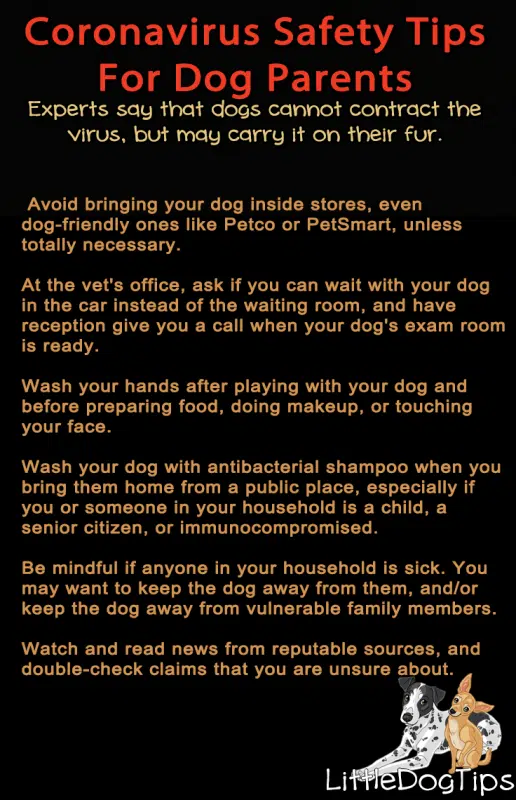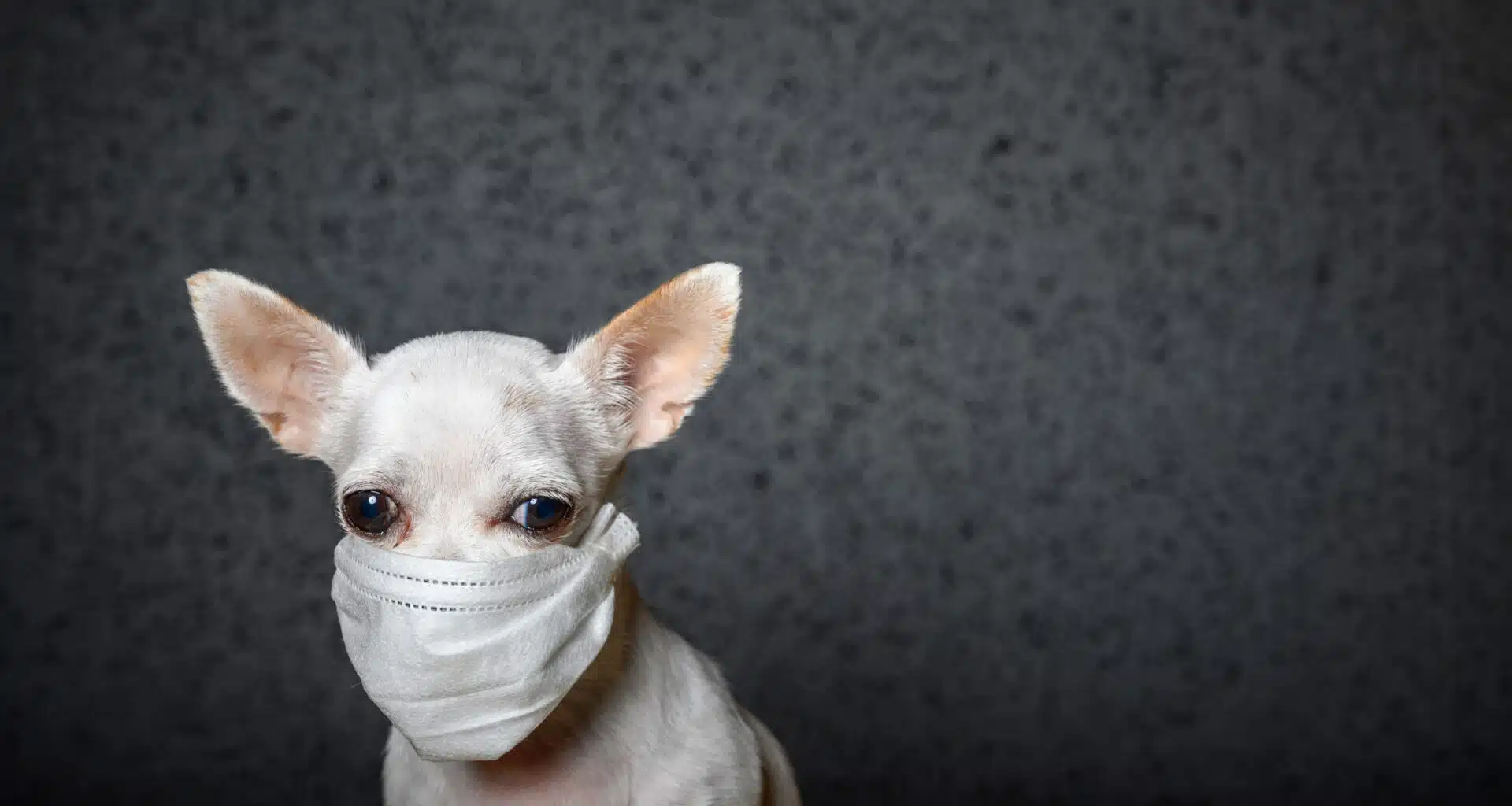Each day, more cases of coronavirus (COVID-19) in humans are being reported, and it’s hard to distinguish fact from fiction, precaution from overcaution, and to know what you actually need to do to protect yourself, your family, and your community.
You may be relieved to find that having a dog does not greatly increase your chance of contracting or spreading coronavirus, though there are a few things you should know in this difficult time.
Have Any Dogs Tested Positive For Coronavirus? At the time of this writing, one dog has tested “weak positive” from samples taken around his nose and mouth. The dog does not have any symptoms, and it is possible that he was carrying the virus as a result of close contact with his owner, who does have coronavirus. With 10,149 cases in humans worldwide at the time of writing, if it were possible for pets to catch coronavirus and actually get sick from it, we likely would have seen a case like that by now.

Does My Dog Need A Face Mask? Most human face masks do little to protect people from coronavirus, let alone our dogs. A face mask that is designed to filter out particles, like an N95 face mask, can be helpful to humans, but there are very few options that actually have a chance of working for dogs. Face masks, even the few designed for pathogen protection, can be difficult to fit properly on every breed of dog.
They can inhibit breathing and panting, and they can induce unnecessary stress in dogs. Keep in mind that dogs are low to the ground. They’re unlikely to contact high-up surfaces that a sick person may have touched or sneezed on. How Dogs Can Transmit Coronavirus Like any soft surface, your dog’s coat can carry coronavirus if she comes in contact with someone who is affected. So, if your dog snuggles with a sick person, and then you pet your dog, and then you touch your nose, there’s a small chance that you could get sick too.
Experts are not sure how long the virus can survive on surfaces, but similar viruses can survive from a few hours to a few days. How To Disinfect Your Dog Fortunately, the virus seems to be more commonly contracted through the air via the spread of droplets (from coughing and sneezing) than from touching common surfaces.
Even so, you may want to disinfect your dog’s coat before entering your home, visiting a school or nursing home for therapy visits, or if you otherwise are concerned about your dog carrying a virus on her fur. A study on how therapy dogs can transmit MRSA on visits found that using antibiotic shampoo and microfiber wipes greatly decreased the chances of infection.
Actionable Steps To Take To Prevent The Spread Of Coronavirus Avoid bringing your dog inside stores, even dog-friendly ones like Petco or PetSmart, unless totally necessary.
At the vet’s office, ask if you can wait with your dog in the car instead of the waiting room, and have reception give you a call when your dog’s exam room is ready. Wash your hands after playing with your dog and before preparing food, doing makeup, or touching your face.
Sanitize your dog using the above steps bringing them home from a public place, especially if you or someone in your household is a child, a senior citizen, or immunocompromised. Be mindful if anyone in your household is sick. You may want to keep the dog away from them, and/or keep the dog away from vulnerable family members. Watch and read news from reputable sources, and double-check claims that you are unsure about.







